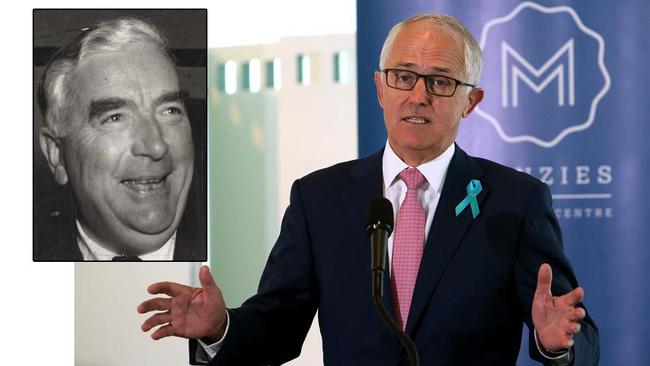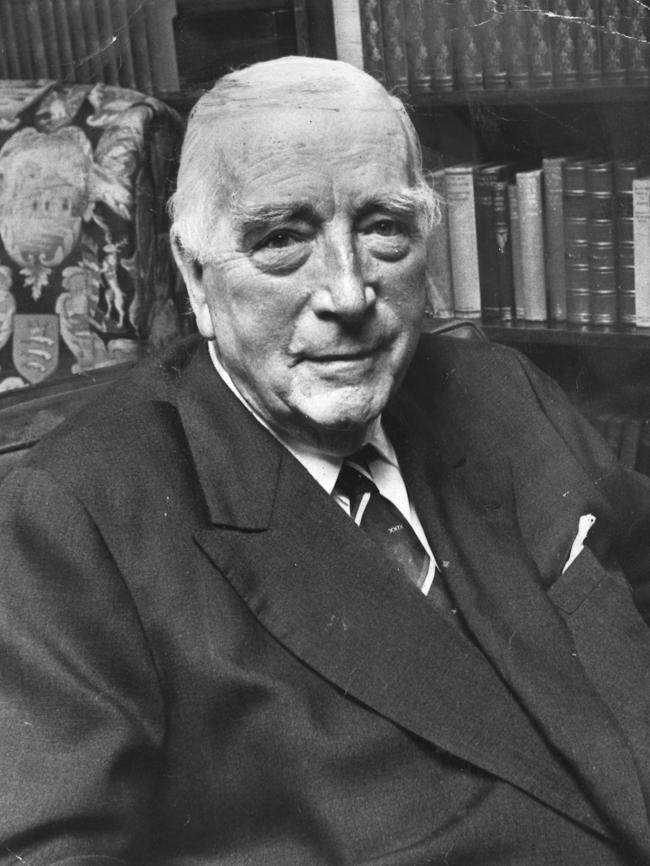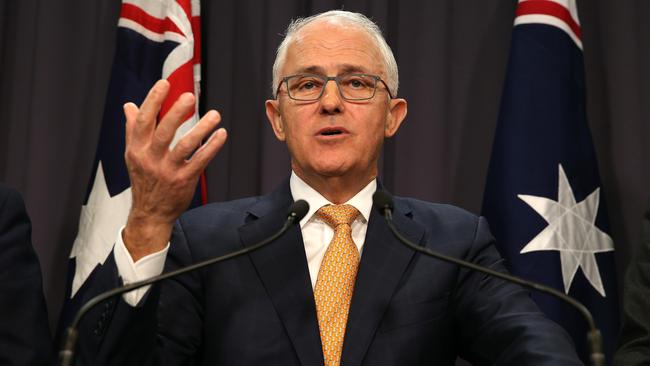Malcolm Turnbull: my government has kept faith with Menzies
Malcolm Turnbull has reaffirmed his belief that Robert Menzies saw the Liberal Party as centrist and progressive.

Malcolm Turnbull has reaffirmed his belief that Sir Robert Menzies saw the Liberal Party as centrist and progressive, and the custodian of both liberalism and conservatism, and that his government has been faithful to this tradition.
“He steered resolutely to the centre ground and put his faith in the goodwill, the common sense and the enterprise of his fellow Australians,” the Prime Minister has written in a new book of essays that revisits Menzies’ wartime broadcasts.
“Our party’s conservatism is an anchor that points to our values, tempers our exuberances and reminds us of our history and traditions; our party’s liberalism is our compass that points to freedom, opportunity, and a future where more Australians can share in our country’s bounty.”
Mr Turnbull is one of more than two dozen contributors to The Forgotten People Updated (Jeparit Press), edited by Paul Ritchie, published this week. The book revisits Menzies’ radio broadcasts from 1941-43 and relates them to contemporary issues.
Contributors include Tony Abbott, Christopher Pyne, Josh Frydenberg, Kelly O’Dwyer, Michaelia Cash, Tony Smith, Paul Fletcher, Concetta Fierravanti-Wells, Ken Wyatt, Alan Tudge, Scott Ryan, Jim Molan, Tim Wilson, Peta Credlin, Julian Leeser, Trent Zimmerman, Dean Smith, Jane Hume, Linda Reynolds, James Paterson, Andrew Shearer and Georgina Downer.

Ms Credlin writes that the “electoral viability of the Liberal Party” is at risk unless it recruits more women into its parliamentary ranks. Only 22.6 per cent of federal Liberal MPs are women. “If it’s not urgently arrested, it will make electoral success much more elusive in the future,” she writes.
Mr Abbott calls for Australia to deepen its relations with other countries by demonstrating “goodwill” whenever we can. “If Australia is to be secure, and if the world’s wellbeing is to be advanced, then the countries that are most committed to universal respect … need to work together in every possible way,” he writes.
Senator Molan argues that the era of “total war” may not be behind us, that we can’t rely on the US for assistance and that the multicultural character of Australia may provide a challenge in unifying the nation against external threats.
Ms Downer writes of the danger posed by “authoritarian regimes” such as China and Russia to the liberal world order. Mr Shearer writes in defence of the US alliance. In other essays, Mr Frydenberg calls for greater integrity, capacity, judgment and vision in politics. Mr Pyne and Mr Ryan, the Senate president, discuss the noble role of the opposition in politics. And Mr Smith, the Speaker, considers the democratic responsibilities imposed on MPs.

Senator Paterson has written about threats to freedom of speech and Mr Wilson has written about the importance of “cheerfulness”. More personal essays include Julian Leeser’s epistle to his newborn son about freedom of worship and Mr Wyatt’s account of his impoverished childhood.
Mr Ritchie, a former speechwriter to Mr Abbott, describes Menzies’ broadcast essays published in 1943 as “the sacred text” of the Liberal Party: “The essence of The Forgotten People is the belief that Australia’s future prosperity was to be found in giving the middle class more choice, more freedom and more reward.”






